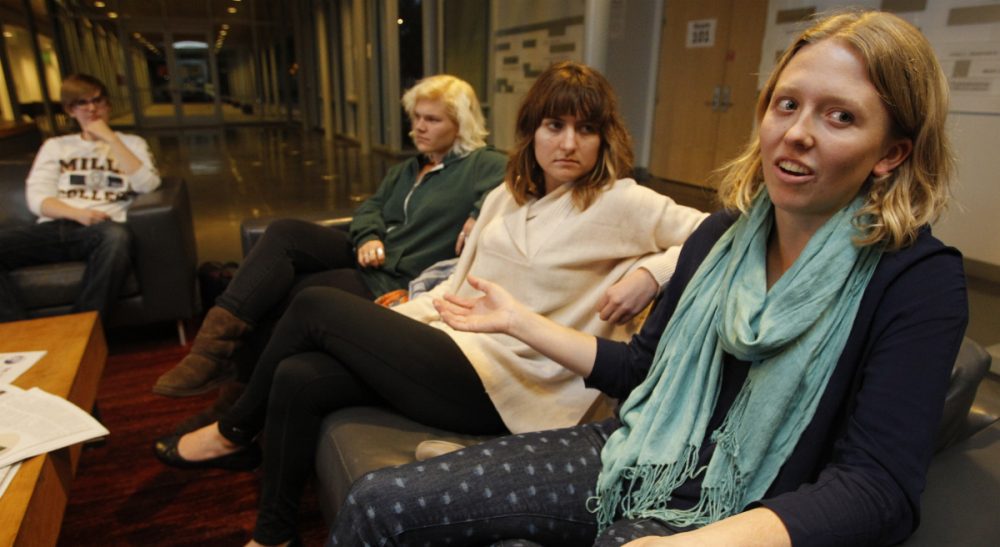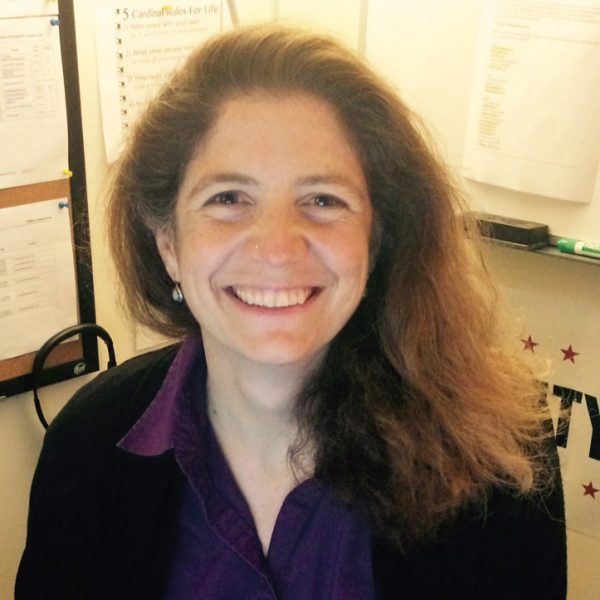Advertisement
As Gender Definitions Expand, So Do Some Women's Colleges' Admissions Policies

Rugby was the perfect sport for me. I was the high school basketball player who excelled at physical play and fouled out almost every game. I was the girl who constantly wanted to play football with her male cousins. I needed a full contact sport, and rugby offered that. On Fauver Field at Wesleyan University, I developed confidence as an athlete as I learned how to tackle, ruck and protect myself from flying cleats and elbows.
Building a campus composed of students across the spectrum of womanhood provides another dimension of learning.
But more than learning the difference between a scrum and a maul, rugby pushed me to confront my own feelings and understanding of sexuality and gender expression in ways that I hadn’t anticipated. On the rugby pitch, there were many different expressions of gender and femininity, each stark and distinct. It was on that field that I began not only to accept my attraction to women, but also to learn that fitting into the neatly defined box of what I thought a lesbian was supposed to be was not as confining and particular as I thought.
That there is not one single image or definition of gender is a notion gaining currency, and it’s about time. That recognition has inspired two women’s colleges to change their admissions criteria to consider anyone who identifies as a woman, regardless of their assigned sex at birth. In August, Mills College in Oakland, Calif., announced its new admissions policy. And in September, Mt. Holyoke College in South Hadley, Mass., did the same.
“We recognize that what it means to be a woman is not static,” Lynn Pasquerella, the president of Mt. Holyoke, told students at a welcome convocation. “Just as early feminists argued that reducing women to their biological functions was a foundation of women’s oppression, we acknowledge that gender identity is not reducible to the body.”
Pasquerella’s announcement came in the wake of expressions of anger over another women’s college’s decision not to admit a transgender applicant. Smith College, in nearby Northampton, Mass., rejected Calliope Wong, whose gender on federal aid and admissions applications did not match.
Supporting the notion that womanhood is not fixed, especially in the context of women’s colleges, is critical to acknowledging and accepting the spectrum we all live on with regards to gender identity. We live in a time when closely held corporations have the Supreme Court’s backing to deny contraceptive coverage to female employees, and when a Christian minister refers to women as “a very nice home” for God’s penis. It is more important than ever that women be able to define who they are for themselves and have control over their own bodies.
Gender identity may not be simple, but supporting those who identify as female and who wish to advance their academic careers among women, whether they were born to the sex or not, is.
Mt. Holyoke and Mills College are leaders in ensuring that their students are able to live genuinely. These schools are a model for how to fully support all women, including women born male who identify as female. The administrations understand that this change in policy will not hinder their ability to provide the best academics for dedicated and ambitious women. In fact, by offering an expanded and inclusive worldview to their students, this decision will enhance that ability.
A diversity of experience among students only enriches the learning process. The world these students inhabit is a mosaic of varying cultures and identities. Building a campus composed of students across the spectrum of womanhood provides another dimension of learning. Other women's colleges should follow suit.
I hung up my rugby cleats long ago, but the lessons I learned on Fauver Field stick with me to this day. Those lessons have helped me to thrive as an advocate, as a queer woman and as an individual. Gender identity may not be simple, but supporting those who identify as female and who wish to advance their academic careers among women, whether they were born to the sex or not, is.
Advertisement
Related:

